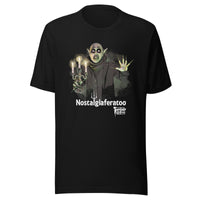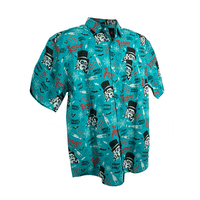McLean Stevenson wanted M*A*S*H to go by the book
M*A*S*H pulled more inspiration from the book than it did the 1970 movie.

A number of television series have been derived from movies, but M*A*S*H was one of the first series to ignore the movie and go back to the book for inspiration.
For those that don't know, M*A*S*H originated as a book, MASH: A Novel About Three Army Doctors, which originally came out in 1968. Like the series, the book was popular and received critical acclaim for its satirical portrayal of the Korean War.
It quickly moved to bestseller status, which gave way to the M*A*S*H movie in 1970 and, of course, the M*A*S*H series in 1972. According to a 1973 interview with The Columbus Ledger, the CBS series only drew the physical look of the camp from the film.
McLean Stevenson, who played the role of Lt. Col. Henry Blake, said there were only three major differences between the series and the movie.
"First, the surgeons are highly skilled in the book and in the series. They are not in the movie," Stevenson said. "Second, in the series, any joke in the operating room is strictly between the doctors. In the movie some of the jokes were directed at the patients. Third, we all wanted to be drafted, as everyone in the book was. In the movie they made Col. Blake a regular Army man."
Stevenson said he preferred the M*A*S*H series to be done by-the-book. He said the changes in the series were made to reflect different attitudes and provided a more believable foundation for the off-duty antics between everyone in the 4077th.
M*A*S*H was one of the first television series to delve into the horrors of War. Stevenson compared his series to McHale's Navy, saying that M*A*S*H was better at balancing the silly stuff with the heavy moments.
"The thing that would make us welcome in living rooms is that we react to war, but we do not participate in it," Stevenson said. "We felt strongly about the war in Vietnam. Although this is Korea in 1952, it could be Vietnam."
For M*A*S*H to be successful, Stevenson believed it had to be based in reality. For example, the cast decided not to make any jokes about war, they would not assume any kind of military posture and they decided to make the surgical scenes feel real.
He believed that showing war in this type of way would feel real to people while also reeling them in. Despite their rules of business, Stevenson said the cast and crew had a lot of free reign to give suggestions and edits.
"Gene Reynolds (producer) had given us freedom to make fools of ourselves," Stevenson said. "Gary Burghoff may make 100 suggestions that are all wrong. But something in those 100 suggestions will give Wayne Rogers an idea. Not once does Gene put us down. From that comes something real and genuine. That's the beauty of improvisational freedom."









2 Comments


























